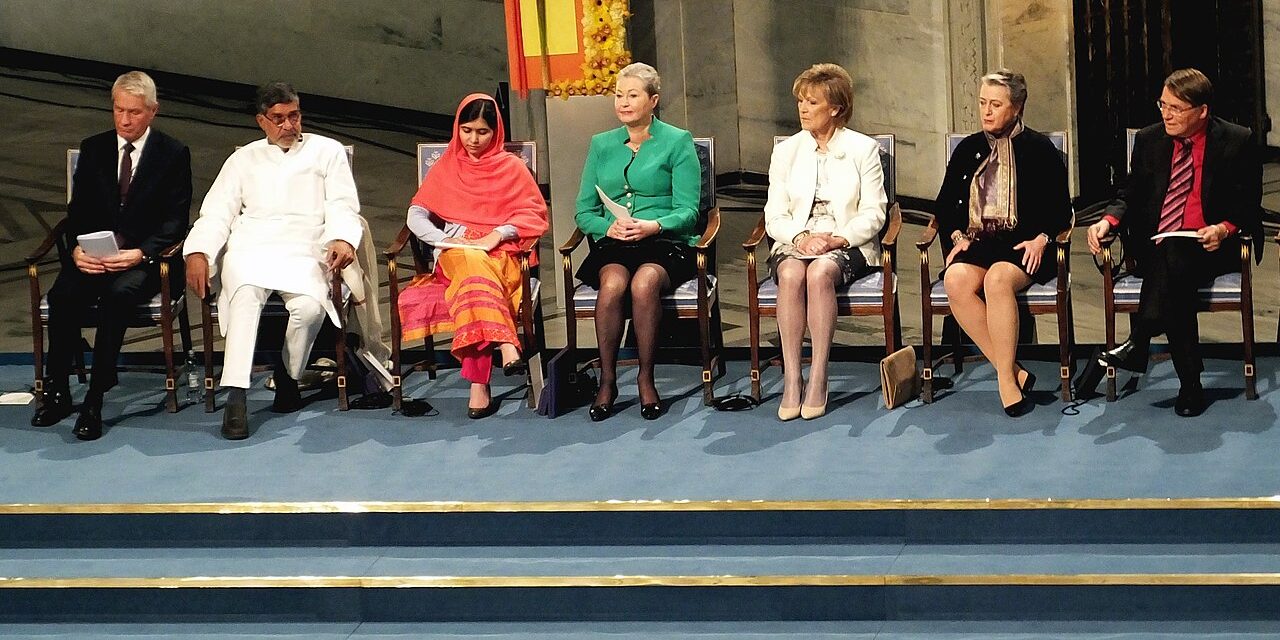A Nobel cause: The past, present, and future of the Nobel Prizes
Alfred Nobel (1833-1896) was a Swedish chemist, inventor, and industrialist who was born in Stockholm. He was attributed as saying the following:
“Hope is nature’s veil for hiding truth’s nakedness.”
The Nobel Prize was first established in 1901 and, outside of extenuating circumstances, has run every year since. The prizes – across the fields of mathematics, physics, chemistry, peace, literature, and economics – are some of (if not the most) prestigious in their fields.
Nominations for the award open in September of the previous year and close in January, with deliberations overseen by the Norwegian Nobel Committee: a committee comprised of five people tasked with making the final decision around the winner of each prize.
In recent years, some of the choices for Nobel recognition, particularly in the peace prize, have been more controversial
Nobel’s legacy is wrapped in the promotion of peace and the mitigation of future wars, with recipients being held up as role models for the values that the award intends to promote.
In recent years, some of the choices for Nobel recognition, particularly in the peace prize, have been more controversial. In 2009, President Barack Obama was awarded the prize for his role as the 44th President of the United States of America. The deployment of US troops into Iraq and Afghanistan later in his presidential term was seen by many to contradict these aims. This echoes back to the award of the prize to Henry Kissinger, another US official, in 1973, a decision also tinged with controversy based on his legacy.
Andrew Oswald, ‘a Nobel class researcher’ at the University of Warwick, said the following:
“Warwick has yet to win a Nobel in the true sense (i.e. by someone employed at Warwick when they won) but I imagine it will happen eventually.”
The University has hosted several Nobel Peace Prize recipients, including Tawakkol Karman, who won the prize in 2011, and John Hume, the Nobel Peace Prize Laureate of 1998. They have a reputation for promoting talent in the empirical and scientific spheres the Prize recognises. Alongside this, the University is connected to several organisations that have a ‘Nobel affiliation’ within the sphere of peace promotion. Having had alumni work with organisations including UNHCR (United Nations High Commissioner for Refugees, also known as the UN Refugee Agency), Amnesty International and Human Rights Watch.
The spectre of whether Trump would or would not be nominated loomed large over the committee’s decision
The prestige of the prizes is reliant on the committee choosing worthy recipients who embody the spirit in which the prizes were given. This year, that spirit was particularly contested. For more than six years, President Donald Trump has talked about winning a Nobel Prize, citing a feeling that he should receive the prize for the number of agreements he had reached when addressing the United Nations in 2019.
“I think I’m going to get a Nobel Prize for a lot of things, if they gave it out fairly, which they don’t,” he said.
Trump has been nominated for a Nobel Peace Prize on several occasions. These nominations have typically come from right-wing European politicians.
The Nobel Peace Prize for 2025 was awarded to Maria Corina Machado, the opposition leader in Venezuela. In the face of Machado’s acceptance of the award, Trump began inundating social media with comments speculating that he himself was in the running and that Machado personally called to tell him she was accepting the award in his honour.
“I dedicate this prize to the suffering people of Venezuela and to President Trump for his decisive support of our cause!”, she posted this on the social media platform X following her win.
The spectre of whether Trump would or would not be nominated loomed large over the committee’s decision. There were arguments that the standard upheld by the awards should be preserved and that any sway as a result of popular discourse could potentially undermine this.
With progressively more politicised actors now crowding the decision-making process and attempting to sway proceedings, all eyes will be on the next prize-giving
For his part, Trump argued that the award was still dedicated to him and wagered that there was bias within the Nobel committee’s decision. The final decision to give the award can be read as either a vindication of the autonomy of the award or a conscious effort to keep the it separated from outside influences, depending on your perception.
This sets up the prize as possibly being tainted by political bias, particularly in the nominations process. The judges within the Nobel committee are now subject to a level of global surveillance that is going to put the future of the awards under pressure.
With progressively more politicised actors now crowding the decision-making process and attempting to sway proceedings, all eyes will be on the next prize-giving. In the wake of Machado’s win, it was the fierce online discussion over both how the award is administered and who it is presented to that got the real spotlight.
In an era of media, performance, and politics, the integrity of awards for those who “shall have conferred the greatest benefit to mankind” remains more important than ever.

Comments